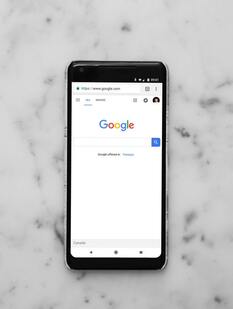|
Amanda Smera Welsh
If you are a writer, especially a writer in the middle of a graduate program, you will undoubtedly encounter many craft materials through the course reinforcing the need to establish a discipline to your own writing. Sometimes, they can sound a little delusional, which was precisely my reaction when I read Robert Olen Butler’s “From Where You Dream.” It truly is the most overtold advice any writer has heard before: “You may not be ready to write yet, but when you’re in a project you must write every day. You cannot write just on weekends. You cannot write this week and not next week; you can’t wait for the summer to write. You can’t skip the summer and wait till the fall. You have to write every day. You cannot do it any other way. Have I said this strongly enough?” Yes you have, dude, now please shut up!
0 Comments
 by John Castle I remember being eighteen and sitting in my therapist’s office one summer day. I sat in the center of his large couch with my hands folded as he read to me from an old beaten up spiral notebook with several tears, stains, and scribbles that decorated it’s pages. Each page described a fear, a confession, a hatred, a sense of sorrow, all with a tone of dread and hopelessness. I was taken aback by what I was hearing, and a part of me questioned whether the author was being a bit dramatic. It was astonishing to hear the amount of pain the writer of this journal had been in. The only thing though was, this was my journal. I was the one who had filled these pages. All of these fears and frustrations were mine, and I had spent a good portion of my summer that year documenting them in that very notebook. Except, at that moment it was as if these feelings didn’t belong to me at all. by Marissa Stanko  Photo by C D-X via Unsplash Photo by C D-X via Unsplash Trying to find your identity as a writer is nerve-wracking. There’s pressure on all sides to do certain things or be a certain way or write at certain times and so on and so on. It took me a long time to feel like I was a writer, and even now I struggle with feeling like I don’t write “the right way.” One of the things I always felt forced to justify as a writer, even to myself, is that I like to listen to music while I write, and it isn’t instrumental. Studies, blog posts, and articles galore tell me that I shouldn’t listen to music while I write, or that if I do, it should be classical, instrumental, or a playlist designed to fit the piece I’m working on. Lyrics distract from writing, they say. Music puts your focus somewhere else. And I know for many people, that must be true. by Christina Cullen  Image via Unsplash Image via Unsplash Last week my father asked me “What do the letters A.D. stand for?” as I racked my brain for the Latin Anno Domini and realized how little I had paid attention during my Catholic school days. He continued, “You know, when you search for something on Google, you sometimes see the letters A.D. What does that mean?” My father recently retired from a corporate job and started his own signage business. He is a master networker and can make personal connections in minutes, but for him the online realm is a new landscape. Despite being the first in our family to own a computer, smartphone, and tablet as well as the fact that Google Adwords, the world’s first “self-service advertising program” was launched in 2000, two decades passed before he realized these two tiny black letters at the top of a Google search are the abbreviation of advertisement. by Edward Benkin
These have indeed been trying times. A global pandemic, a heated political environment, and social unrest have led to one of the most stressful climates in decades. In addition to the physical toll from Covid, the mental health of many have been affected in a way many Americans have never experienced in their lifetimes. The cure? Write, write write. There has never been a better time to sit down in front of your computer (or your desk with a pen and pad of paper) and write out everything from your feelings to whatever poetry or story ideas race across your brain. People have different ways to relieve stress, and writing for fun or writing out one’s fears or anxieties may just be the cure for the emotional trauma many have been going through in recent months. |
Archives
July 2024
Categories
All
|
|
Glassworks is a publication of Rowan University's Master of Arts in Writing 260 Victoria Street • Glassboro, New Jersey 08028 [email protected] |
All Content on this Site (c) 2024 Glassworks
|

 RSS Feed
RSS Feed
